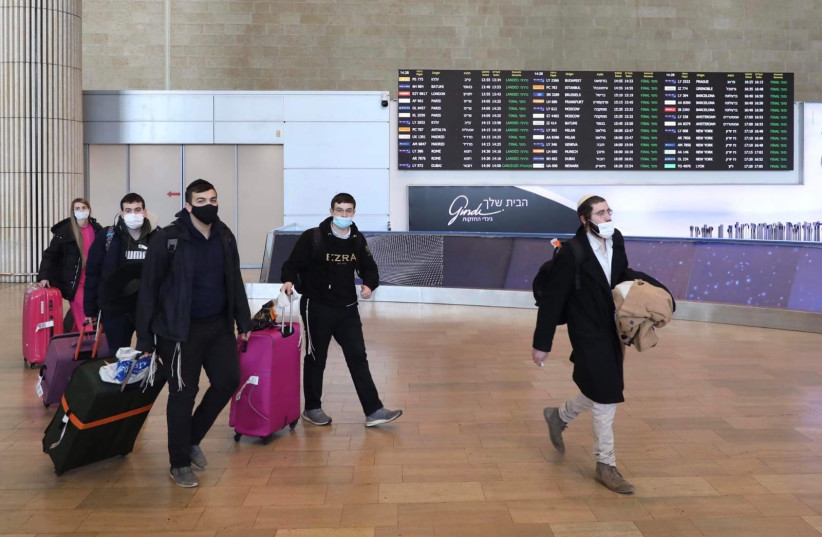Last week, Chief Rabbi of Israel Yitzhak Yosef called for the Jews of Ukraine to immigrate to Israel in the face of the escalating security threat from Russia. Rabbi Yosef addressed the published letter: “To our dear and beloved Jewish brethren… especially in Ukraine.” He went on to say: “At times when the voices of war are heard… it is the sacred duty of every Jew… to hasten his journey to the Holy Land.”
On the surface, what could be more moving and authentic than an appeal by the chief rabbi of Israel for Jews in distress to make aliyah? In reality, this is a show of hypocrisy and cynicism. When Jews are in Ukraine, they’re encouraged to immigrate here. They’re guaranteed a warm welcome.
Yet, the same chief rabbi has lashed out at those very same Jews: “They’re hostile to religion, haters of religion. They’re not Jews at all, [they’re] goyim. Then they vote for parties that incite against the haredim and against religion.” He was speaking at a gathering of rabbis in early January 2020, as reported in the media at the time.
The haredi Knesset members take the same line. For example, MK Yitzhak Cohen (Shas) derided an MK who immigrated from Russia: “You’re still a new oleh with a thick Russian accent. You come from a culture that taught you antisemitism.” MK Moshe Gafni (United Torah Judaism) called MK Yulia Malinovsky (Yisrael Beytenu) antisemitic.
There are many more examples.

Even if the immigrants from Ukraine are recognized as Jews according to halacha (Jewish law), in the eyes of the Chief Rabbinate they aren’t Jewish until proven otherwise and a rocky road awaits them. In Israel, the only one way to get married is through the offices of the rabbinate. When these olim want to marry, like hundreds of thousands of other immigrants already living here, they can expect a torturous procedure of verifying their Jewishness. The process includes exhaustive probing and demands for proof, even when it’s clear as day that they are Jews.
For those who aren’t Jewish according to halacha and wish to convert, the journey is twice as difficult. The state conversion system, which operates under the supervision of the chief rabbi, often takes the strictest approach to conversion. As a result, the number of converts among CIS immigrants is very low, about 1,500 per year. Due to the system’s demands, only 20% of olim who begin conversion studies complete them, while those who stay the course endure humiliating treatment.
They are constantly in danger of non-recognition or having their conversions canceled. Moreover, they are regarded as safek yehudim (questionable Jews) by the haredi rabbis, including the chief rabbi, if they are not converted by haredi rabbinical judges.
Even in death, the hardships faced by the new immigrants do not end. Even if they lived as Jews in their own eyes, doubt can be cast on their Jewishness when their families try to bury them. If they aren’t recognized as Jews, the path to a burial plot will be that much harder in the scarcity of appropriate civil burial options in Israel.
Ukraine and other Commonwealth of Independent States countries are home to many Jews who could immigrate to Israel; the fear of war may hasten them to do so. If Yosef, the Sephardi chief rabbi of Israel, like his Ashkenazi counterpart, Rabbi David Lau, and the Chief Rabbinate as a whole, really and truly want Jews to make aliyah, then letters are not enough. They must drastically change their attitude toward these Jews and their Jewish heritage and traditions.
They must receive them with an embrace and not with endless skepticism, and they must reach out to those who choose to convert with a welcoming conversion procedure, such as the one proposed by the Reform, promoted by Minister of Religious Services Matan Kahana. Without these things, Rabbi Yosef’s letter amounts, at best, to empty words.
The writer is vice president of the Jewish People Policy Institute and a lecturer of law at the Peres Academic Center.
